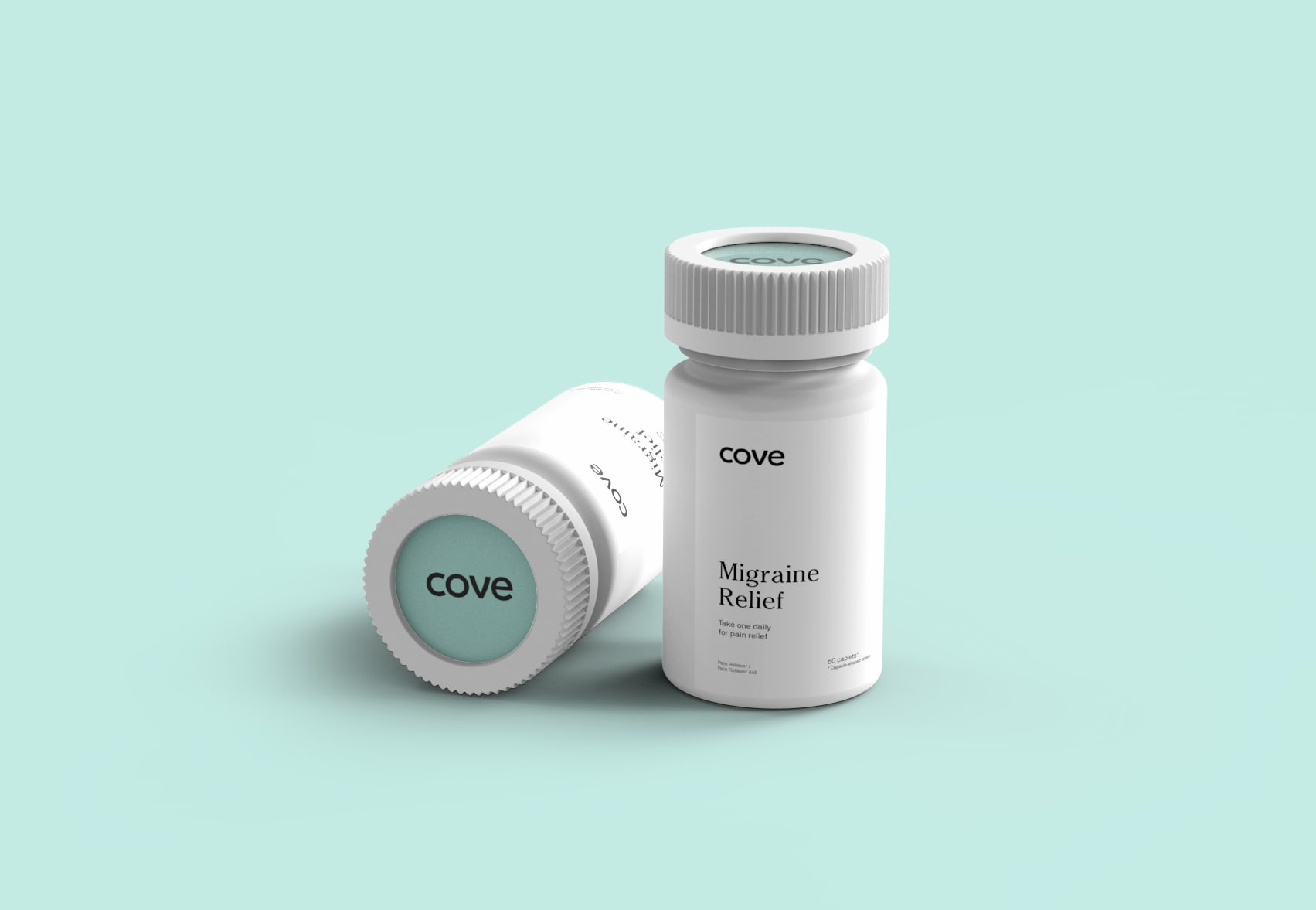Migraine headaches seem to strike at the worst times. Like when your boss needs you to stay late for an important project. Or when your extended family shows up at your house for a holiday dinner. Or on the day you finally scored tickets to see your favorite band.
As soon as your migraine symptoms start, you know you’ll be locked into an attack that could last for several hours (or even days).
But, why does it happen? What actually causes migraine? And what are the biggest migraine triggers?
The answers to these questions are a little complex, so let’s break them down into two parts.
Why do people get migraine headaches?
What causes your migraine attacks specifically?
Let’s dive into that top question first.
Why do people get migraine headaches?
The truth is that scientists aren’t 100% sure what causes migraine. They used to believe that changes in blood flow in your brain caused attacks, but more recent research shows that it’s not that simple.
Now, the belief is that nerves fire throughout your brain in a wave called a cortical spreading depression. This leads to changes in your brain's blood vessels and inflammation, which ultimately what causes the headache pain. However, the reasons this happens to some people and not others still isn’t clear.
Risk factors
Even though scientists don’t totally understand what makes migraine attacks happen, they do know that certain risk factors can mean you’re more likely to get them—among them, genetics, family history, age, and sex.
Genetics
A tendency to experience migraine might be at least partly genetic, although there isn’t just one “migraine gene”—researchers know of at least 20 chromosomes that might be related.
Family history
According to the Migraine Research Foundation, 90% of people who experience migraine attacks have a family history of the condition.
Some specific types of migraine are known to run in families, and can be diagnosed when one of your family members suffers from the same symptoms.
Age
Migraine is most common in people ages 25-55, but it can affect children too—10% of children experience migraine attacks. According to The Migraine Trust, 90% of people with migraine have their first attack by age 40.
Experiencing your first migraine headache in your 60s could be a sign of another underlying medical condition. In general, attacks should become less severe as you get older, and it’s normal to experience fewer as you age, too.
Sex
70% of migraine sufferers are women. Interestingly, before puberty, boys are more likely to experience migraine than girls, but after puberty, the odds flip.
Not only do more women than men have migraine, but women are also at risk of menstrual migraine, a type of migraine attack that’s triggered by hormonal changes a few days before or after your period starts. They can be more painful or last longer than typical attacks, and about 7-19% of women get them.
Hormonal changes
Hormonal changes may be one reason migraine disproportionately affects women. According to the Mayo Clinic, changes in hormones, such as the drop in estrogen women experience just before their menstrual cycle starts, can trigger attacks. Since taking birth control affects your hormones too, it can reduce migraine frequency for some women but increase it for others.
A research paper in the medical journal BMJ Sexual & Reproductive Health found that, for women in menopause, hormone replacement therapy—which helps regulate estrogen and progesterone—can relieve migraine.
Migraine triggers
While it might not be possible to know the exact cause of migraine, you can learn your biggest migraine triggers. “Triggers” is a wide umbrella term that covers anything that brings on a migraine attack.
Understanding your personal triggers can help you take steps to both avoid them (and therefore avoid the attack itself) and understand when you’ll likely have an attack and be better able to plan ahead. They can include everything from stress to lifestyle changes to diet.
Emotional stress
When you’re stressed or worried, your body releases hormones, and that change can trigger migraine attacks, according to Cleveland Clinic. Day-to-day stressors have more of an impact on migraine than major life events, notes the US Office on Women’s Health, so your commute could end up having a bigger effect on your headaches than a single high-pressure event, like buying a house or getting a new job, for example.
It’s easy to get stuck in a stress-migraine cycle, in which stress triggers migraine attacks, the chronic pain causes more stress, and so on. And if your body gets used to handling a high level of stress? That’s not good either. You might experience an attack when you finally come back to a normal emotional state.
Lifestyle changes
Migraine attacks happen when your brain chemicals are thrown out of balance, so anytime you change something in your life that might affect that balance, you can trigger an attack. How much you exercise and sleep, for example, can play a part in how often you experience attacks, or how bad they are.
Diet
Skipping meals, eating certain foods, or even eating particular food additives and chemicals can trigger attacks. Some of the most common culprits include:
- excessive coffee
- aspartame and other artificial sweeteners
- tyramine, which appears in red wine, aged cheeses, and more
Even dairy products and processed foods can trigger attacks for some migraine sufferers.
Alcohol
On that red wine note, you might’ve heard that red wine, and alcohol in general, triggers migraine attacks. The American Migraine Foundation argues it’s more complex than that: Small amounts of alcohol can be safe for people who have migraine, and red wine isn’t any more likely to trigger an attack than another type of alcohol.
But that doesn’t mean alcohol isn’t one of your migraine triggers. It can affect you shortly after drinking it, or have a delayed effect and come on during a hangover.
Caffeine
Caffeine’s a tricky one. While it can be a migraine trigger, it’s also a popular home remedy as well. The National Headache Foundation notes that, “because it contains ‘vasoconstrictive’ properties that cause the blood vessels to narrow and restrict blood flow, caffeine can aid in head pain relief,” and even make some pain relievers more effective for headaches.
That being said, if you get too dependent on caffeine, going off of it can cause a rebound headache (also known as a withdrawal headache). For that reason, the National Headache Foundation recommends not relying on caffeine every day if you have migraine.
Sensory overload
For many people with migraine, bright lights, flashing lights, loud noises, and strong smells can trigger attacks. The National Headache Foundation reports that this might be because of “heightened connectivity” in the parts of your brain that process sights and sounds.
Sleep pattern changes
Like caffeine, sleep has a complicated relationship to headaches. Getting too little or too much sleep can trigger an attack, and any time you throw off your routine—like when you have jetlag or take on shift-work—you might be more likely to have one.
Physical strain
According to the NHS, the UK’s biggest health site, doing intense exercise that your body isn’t used to, developing muscle tension in your neck and shoulders, and just being tired in general can all trigger a migraine attack.
Changes in weather
If you experience migraine, you might notice that sudden weather changes, like an incoming storm or a cold front, can seem to trigger an attack. A 2015 report in the scientific journal SpringerPlus found that 20% of migraine attacks are caused by changes in weather, while the Internal Medicine Journal found that 64% of participants in a 2011 study were affected by weather changes.
Too much migraine medication
Rebound headaches, also known as medication overuse headaches, are one of the most alarming triggers. The basic idea is this: Taking your migraine medication too often can cause more migraine attacks (kind of like caffeine withdrawal). The good news? It’s easy to reverse if you’re working with a doctor to find a better treatment plan.
To get migraine treatment that actually works for you, the most important step is to talk with your doctor. However, tracking your triggers is a simple way for you to take control of your condition—it can help you prevent attacks when possible and predict them when not.
After all, there’s not a cure (yet), and none of the current medication is guaranteed to work 100% of the time. Keeping a headache diary can help you understand what triggers your migraine, give your doctor more tools for diagnosing your condition, and make it easier to choose the treatment plan that’ll work best for you.
The information provided in this article is not a substitute for professional medical advice, diagnosis, or treatment. You should not rely upon the content provided in this article for specific medical advice. If you have any questions or concerns, please talk to your doctor.
Photo by Anthony Tran on Unsplash.


